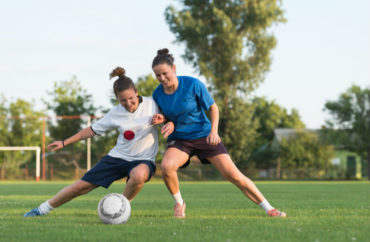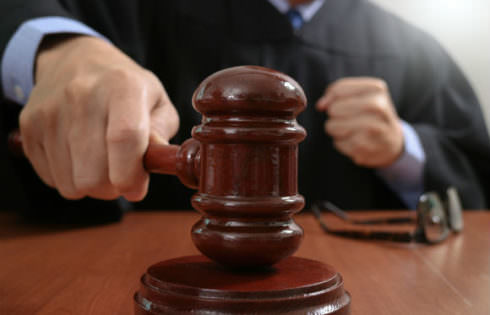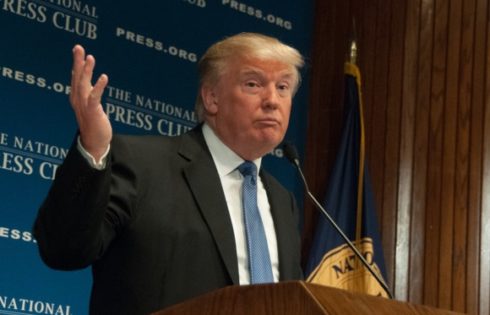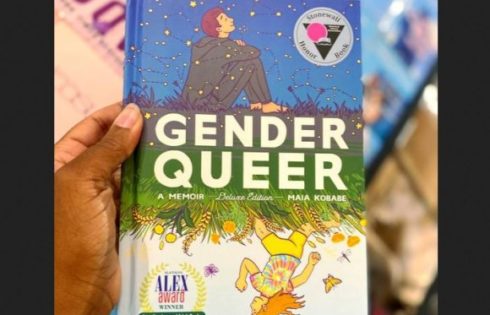
‘The negative impact could cause an increase in stress, anxiety, depression,’ sports psychologist forewarns
Across the country, high school sports associations are canceling or delaying their seasons as educational and political leaders grapple with the best way to return to normal while dealing with coronavirus.
But a sports psychologist warned that removing high school sports could lead to numerous problems for students, including an increase in anxiety, depression, risky sexual behavior and alcohol usage.
“Unfortunately, cancelling sport does have negative consequences,” including on a student’s “emotional, mental and physical health,” Hillary Cauthen, a board member for the Association for Applied Sports Psychology who also runs her own sports psychology counseling firm, told The College Fix via email.
She said sports “can be a safe place for some, where they feel cared for” and have an opportunity to thrive in the development of an identity and relationships with peers and adults.
Cauthen, who also teaches psychology at Texas State University, said sports provide students with a way to regulate stress and also gives them an important schedule and routine. She warned that removing the option for athletic competition from student life could lead to mental health issues.
The negative impact could include “an increase in stress, anxiety, depression, sense of loss-similar to grief,” she told The Fix.
MORE: Students grapple with real mental health problems
Possible outlets that students could turn to in the absence of sports, she noted, include “unsafe sexual behavior,” “alcohol, cigarettes/vaping, prescription or illegal drugs,” as well as riskier driving habits.
She said sports teams are also support systems for many young people. She cited examples from her own work, including helping a female athlete whose father passed away.
“Her team was her family, and her coach and I worked hard to have her continued to feel cared for. All of us thrive on consistency and having someone care about us,” Cauthen said, adding that “[w]orking with coaches to be a positive supportive person in the athlete’s life is essential.”
She provided another example of a coach who recognized signs of abuse in one of his athletes and was able to work with Cauthen to assist the student in finding safety.
Is there a bright side? Cauthen said sports can bring stress as well, however, and suggested that a break could allow students to gain the skills necessary to “shift their priorities and be mindful of their needs.”
So far, 25 states have canceled the fall season completely, pushed some higher contact sports like football to 2021 or canceled sports for the entire year, according to educationdive.com.
The cancellations include illogical plans, such as the state of Maryland canceling a low-contact support like high school golf. My home state of Illinois cancelled some youth sports, while allowing professional sports, even though transmission rates are far lower for high school students and younger.
One thing that has become clear is that many public health experts and policymakers ignore the consequences of their lockdown and shutdown measures.
Instead of pursuing single-minded policies that only focus on reducing the spread of coronavirus, policymakers and public health experts should look at the whole picture and consider the potential consequences of shutting down high school sports, including mental health consequences.
The director of the Centers for Disease Control and Prevention, Robert Redfield, recently sounded the alarm over an increase in suicides and drug overdoses that are hitting all age groups, but are heavily impacting high school students.
MORE: CDC head pushes for schools to reopen, says it is in the ‘public health interest’
Some student-athletes will be shut out from their sport for a year, considering that some high school sports were shut down in March 2020 and will not restart until February or March 2021.
As a former high school cross-country coach and runner myself, I can attest to the benefit of the structure and routine of high school sports.
It is not a cure for all problems and there are high school athletes who engage in risky behaviors, (they are high school students after all), but providing a structure and a routine of practices, workouts, and competition — as well as positive adult mentorship — can do wonders for helping teenagers navigate the travails of their awkward or confusing high school years.
High school students need sports and the benefits sports provide.
MORE: Kids should not be forced to wear masks in school
IMAGE: Fotokostic.shutterstock
Like The College Fix on Facebook / Follow us on Twitter







Please join the conversation about our stories on Facebook, Twitter, Instagram, Reddit, MeWe, Rumble, Gab, Minds and Gettr.